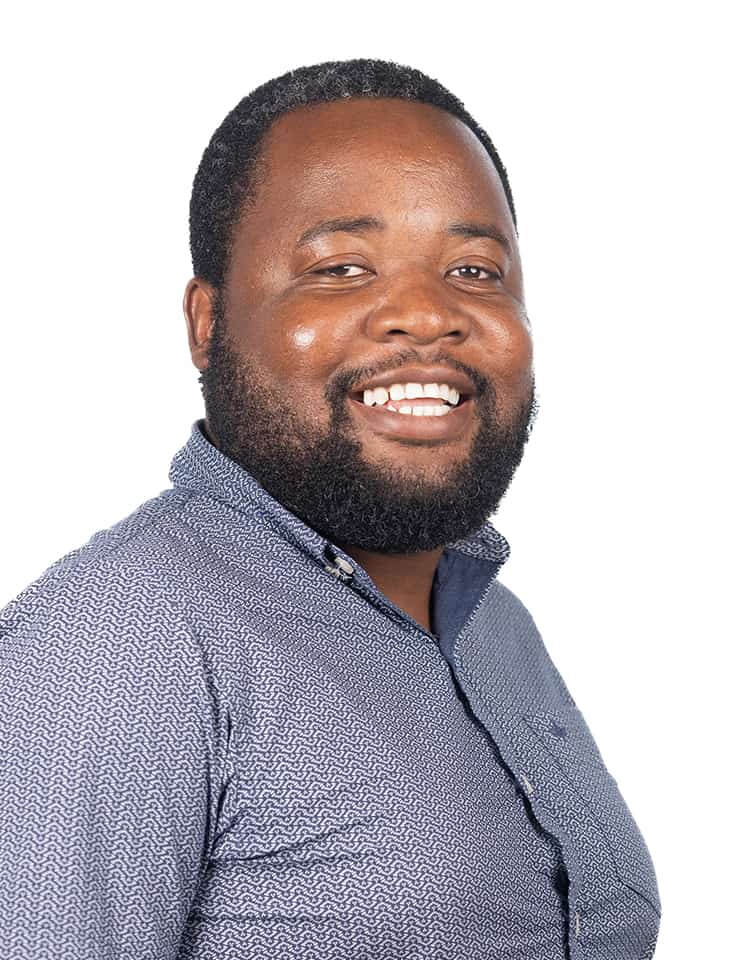The School of Information Sciences’ newest faculty member, Assistant Professor Hope Chidziwisano, was born and raised in Malawi. His research is inspired by his first-hand experiences of the adverse effects of the challenges facing resource-constrained settings in developing countries, such as unreliable electricity and inadequate social services to support socio-economic development at the household level. His research sets out to gather data from real-world experiences to better understand how context, culture, and many other factors affect how users interact with technology, and it often has surprising results.

Chidziwisano brings with him a background in computer science and human-computer interaction, but also his unique perspective on how technology is used.
“I use my background in computer science to design and develop the technologies and then I leverage the human-centered design process to learn about the people and how they’re using those technologies,” he said. “I deploy the technology in people’s homes to understand how they would use them to support their needs or if there are any unintended consequences of using those technologies in their homes.”
Home Safety Smart Technology Surprises
He’s conducted multiple studies in sub-Saharan Africa, specifically Kenya and Malawi. This includes one study that used feature phones and motion sensors in homes that would alert the residents to any unwanted intruders. This was the first time any of the study participants had ever used smart home technology.
To his surprise, the participants didn’t use the home safety app to curb theft, a problem Chidziwisano said is common in the areas where he conducted the study. Instead, here’s what they did use it for:
- To monitor their chickens to understand why some chickens were dying mysteriously.
- Some used it to track their spouses’ movements when they are not at home.
- Fathers were using it to see if their daughters were sneaking out at night.
- Business owners monitoring what time employees get to work.
This study showed how a very patriarchal society would use such technology, and how it could have unintended and possibly detrimental consequences for some people. Despite being intimately familiar with these societal norms, it had not occurred to Chidziwisano that people would use a home safety device in such a way. That’s why studies such as these are so important, he said; they allow for better approaches. He followed up on the initial data by asking the women in the study about potential solutions to their concerns about privacy. These solutions included ideas such as smart cameras that can only work outside the home, or even designing smart sensors as collars that can be worn by dogs to support domestic security outside the home.
Now that he’s in Knoxville, Chidziwisano wants to translate his work to apply to refugees living here who may not be used to the technology now available to them.
“Just because these people have moved to the United States doesn’t mean their cultural perspectives have changed right away,” he explained. “I’m trying to understand how these technologies are impacting women here, specifically in Knoxville, Tennessee. I am looking at what kind of technologies they have in their homes and how that is impacting them in their lives.”
He said he’s already met some local refugees by visiting their shops, and once they learned he’s from Africa, many quickly get on board to participate in the studies he hopes to conduct.
Monitoring Chicken Health
Another of Chidziwisano’s research endeavors touches on a common industry in Malawi and Kenya, poultry farming. He’s gathered an extensive collection of chicken images and audio data to train models that can apply artificial intelligence to detect diseases in chickens. He’s also worked with veterinarians to understand these diseases from the appearance of their droppings to the vocalizations they make when they’re sick.
Not only can this technology help poultry farmers identify when there’s a problem, on a larger scale it can assist with agricultural and public health, Chidziwisano said.
“One of the challenges is that the extension officers only visit the rural areas one time, which is not enough. But if we use this in areas with high occurrences of these diseases then the officers can determine which areas to visit first to check on these chickens,” he said.
In addition to keeping the birds healthy, Chidziwisano said this is also a way that flocks can be monitored for zoonotic diseases—diseases that can pass from animals to humans—and possibly prevent outbreaks in human populations.
While Chidziwisano will be conducting research in East Tennessee and hopes to collaborate with other experts in the University of Tennessee System, he also wants to continue scaling up his research in sub-Saharan Africa.
“I am trying to show that the research that we do in parts of the global south can be translated into western society,” he said. “I want to develop and evolve these technologies so I can go back to Africa and see how they work in a rural setting.”
